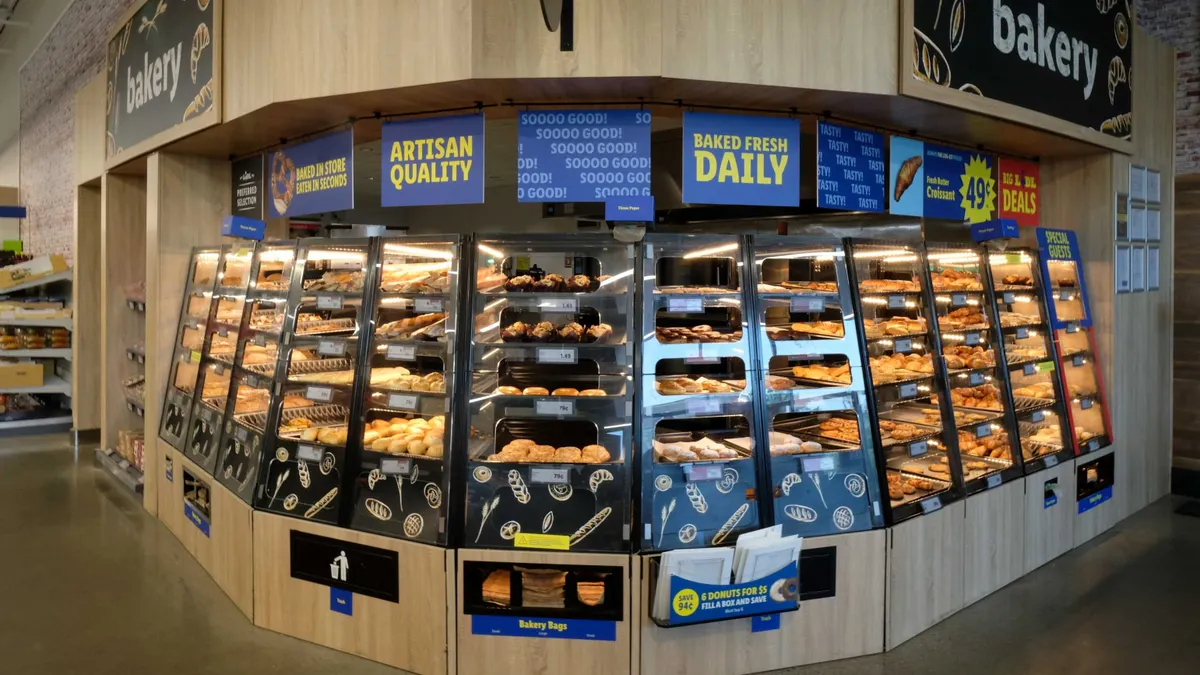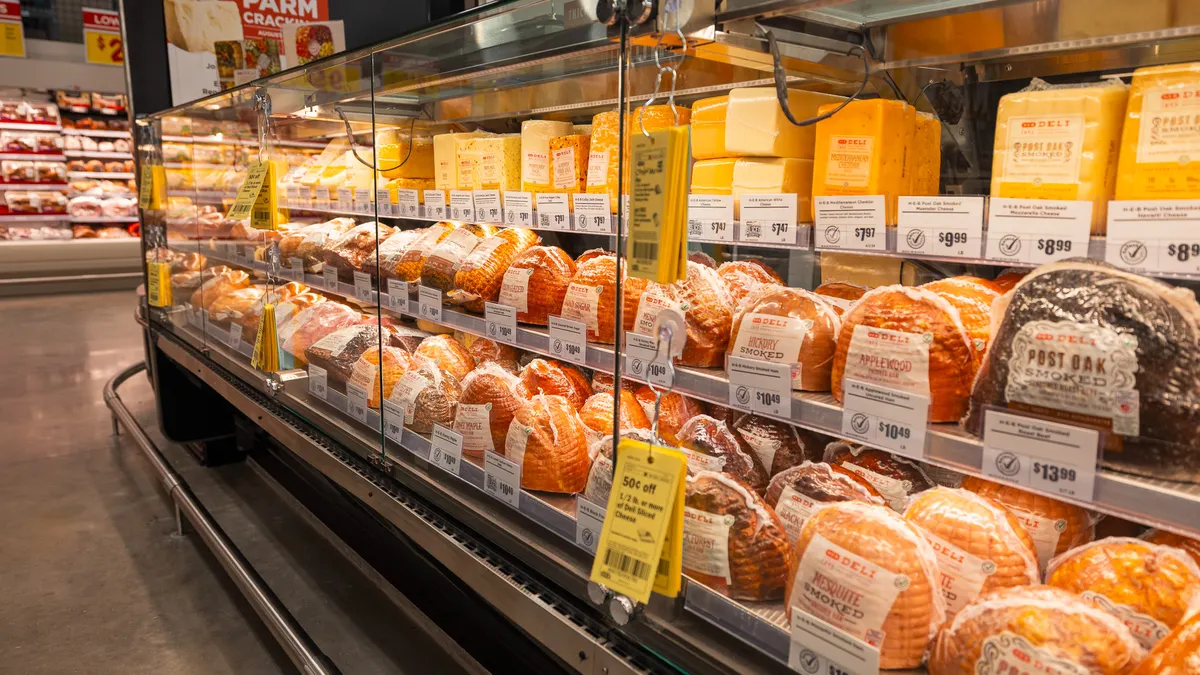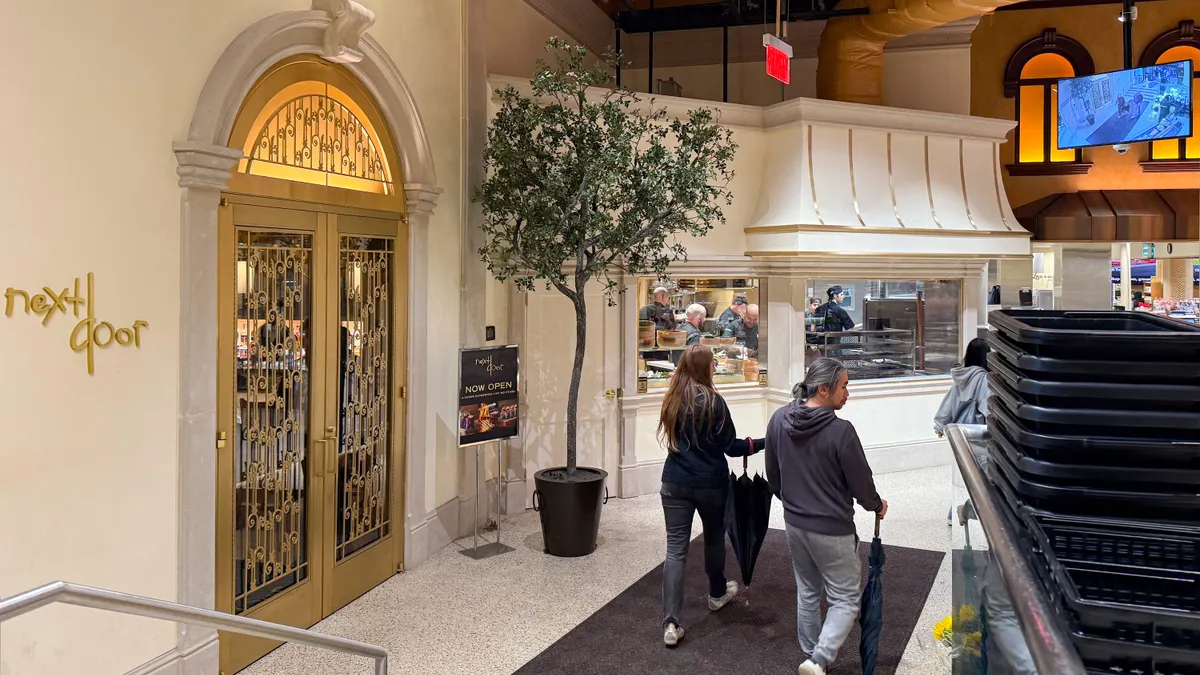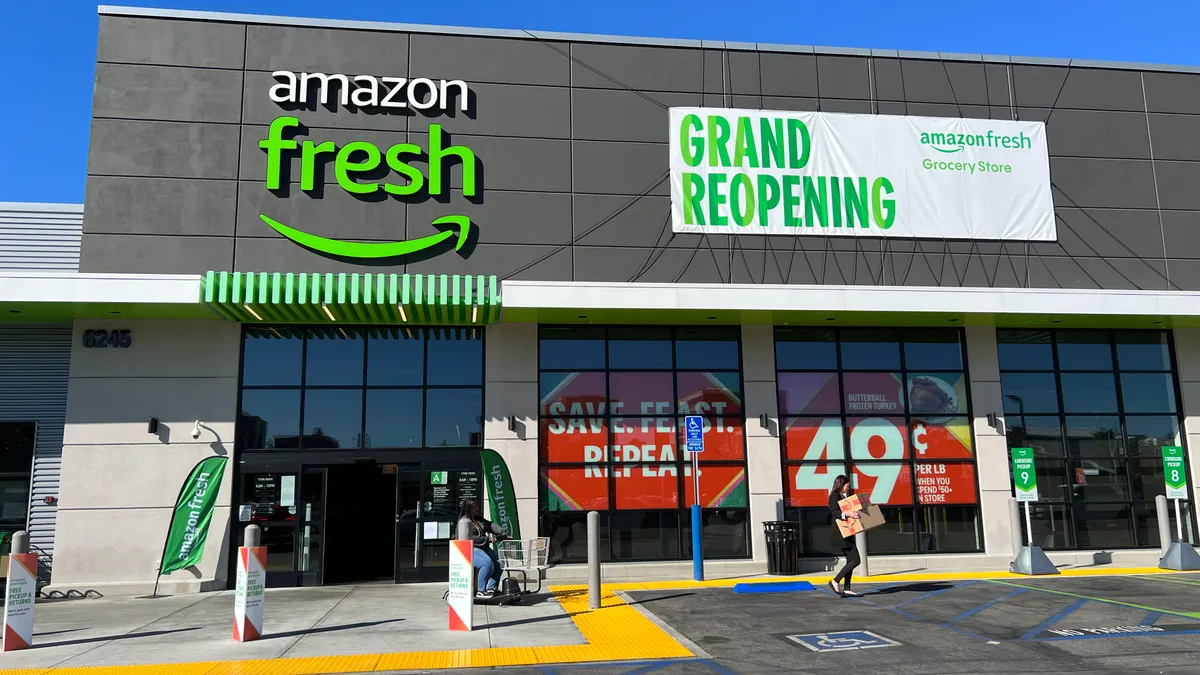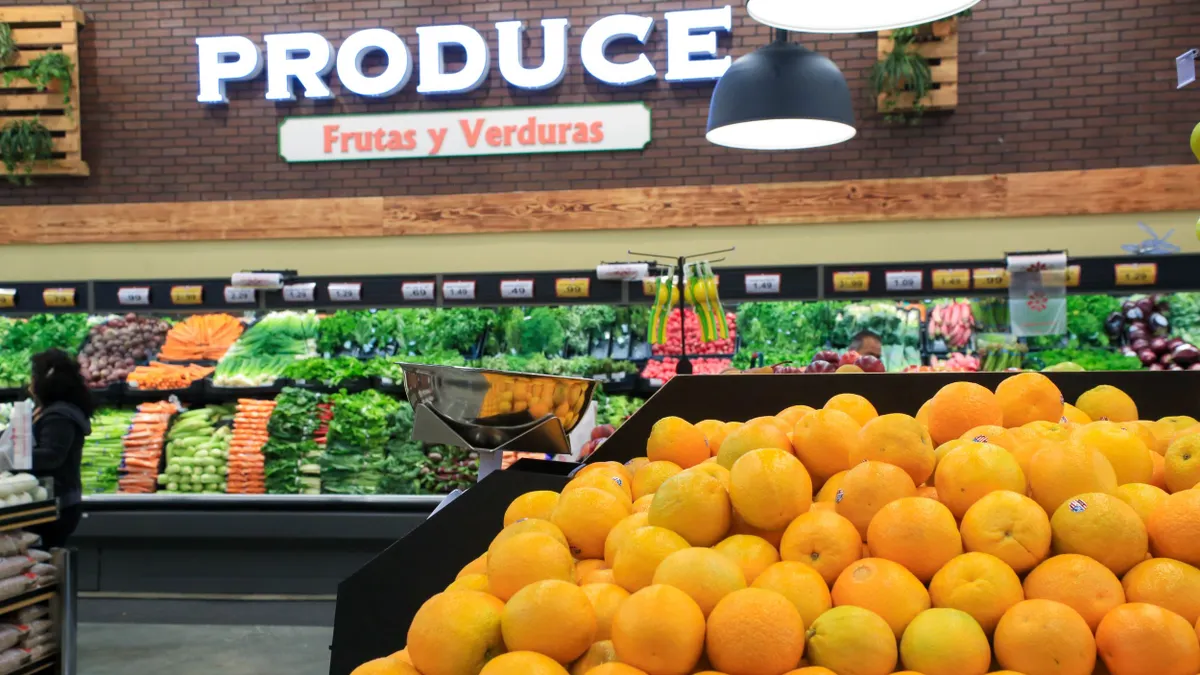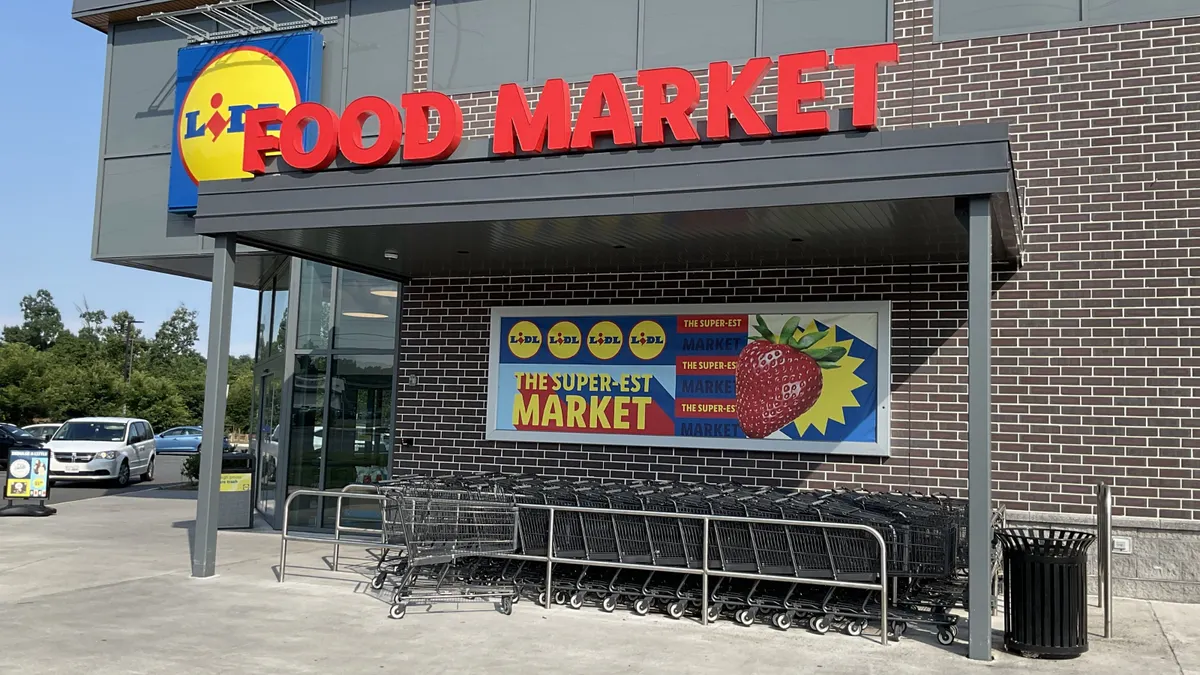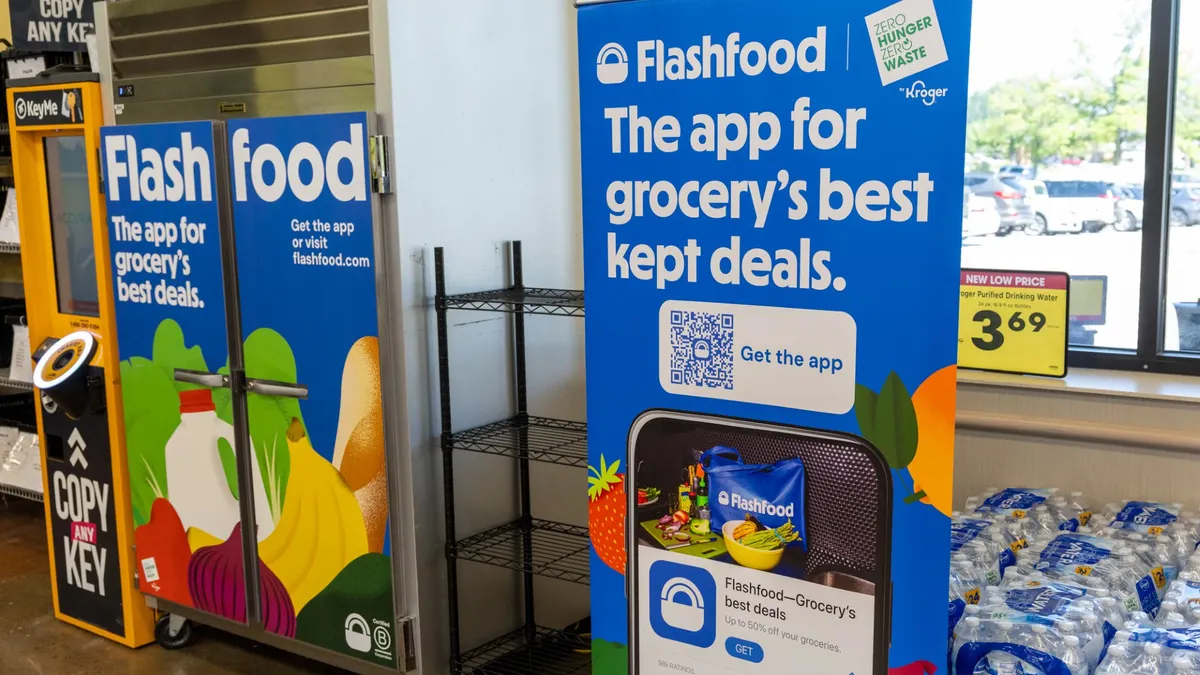Pass through the entrance of virtually any Lidl grocery store in the U.S., and among the very first things you’ll notice is a floor-to-ceiling display of fresh baked goods. Look a little closer, and you’ll see an array of croissants that cost as little as 49 cents, along with bargain-priced breads, bagels, cookies and other items prepared behind the shelves in on-site ovens.
The artfully designed selection of inexpensive bakery items is central to Lidl’s approach to the discount grocery space on this side of the Atlantic. It’s an approach the company has honed over the years as it has sought to win over American consumers, many of whom are still not familiar with the grocer, which is a household name in Europe.
While it might occupy prime space at the front of the store, the bakery is also intended to serve a much broader purpose: Letting customers know right away that the German grocery chain strives to offer low prices without compromising on quality, according to Joel Rampoldt, a former management consultant who became CEO of Lidl US in 2023.
As shoppers move on, they enter the produce section, which Rampoldt said the international grocery company deliberately places close to the front of the store.
“When they think about a discounter, [some people] think about cans and boxes, but we want them to think about fresh products, especially fresh fruit and veg, as soon as they walk in,” he said. “And it’s been core to what we do ever since we opened.”
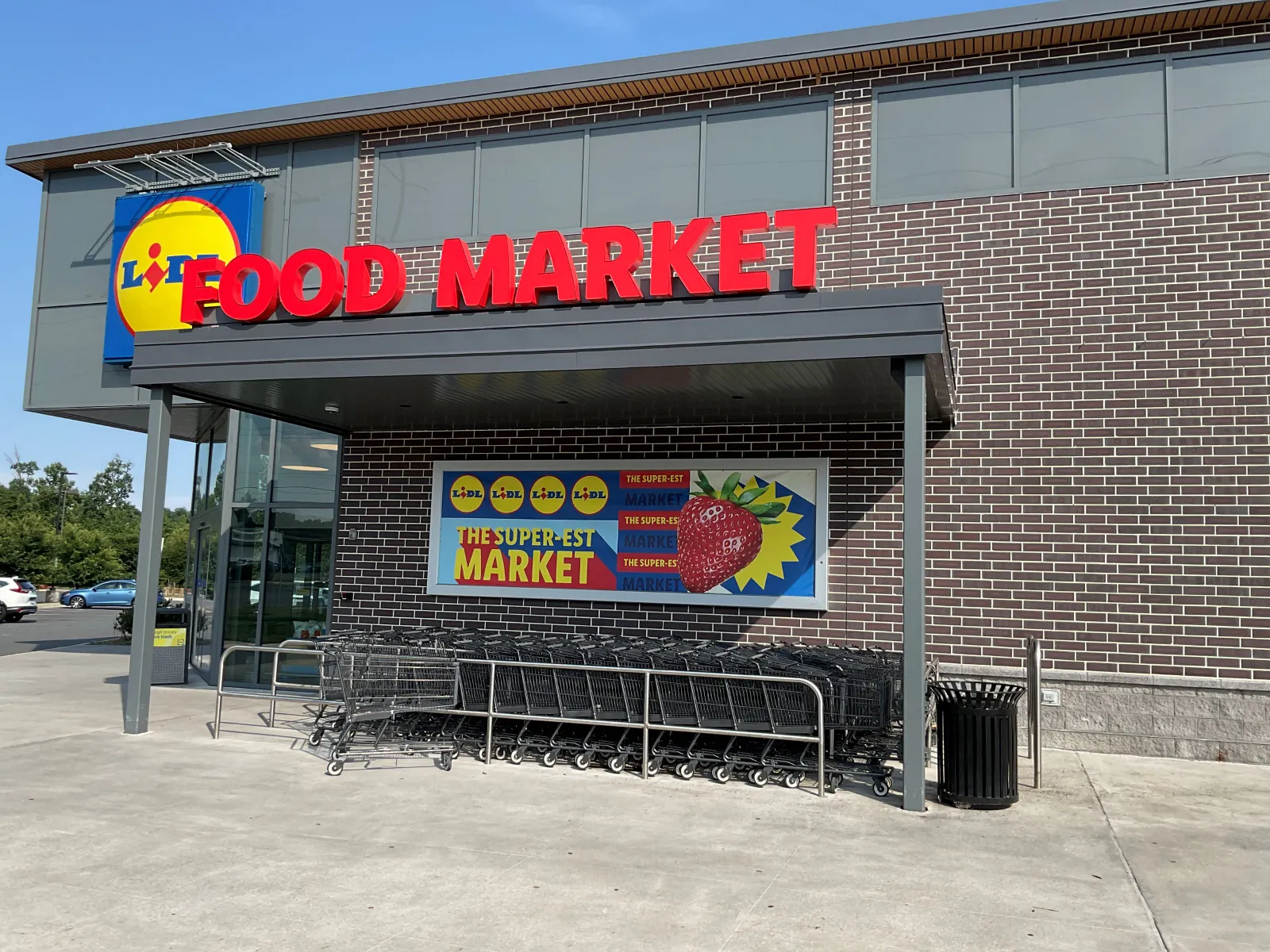
Lidl has been striving to make inroads in the U.S. grocery market since opening its first stateside locations in 2017, and simplicity and standardization are hallmarks of its strategy, Rampoldt explained during a recent tour of a Lidl store in Chantilly, Virginia, that opened in 2023.
Over the eight years since Lidl opened its first U.S. locations, the grocer has tried to liven up its stateside stores with new products, snappier marketing and store design cues that appeal specifically to American consumers — all of which were on display at the Virginia location.
Lidl currently operates more than 185 locations in nine states, and its stores are generally similar in terms of how they are laid out and the products they carry.
“We don’t customize to local regions very much — not nearly as much as traditional grocers — and that is part of our cost equation,” said Rampoldt. “We need to have a model that works almost everywhere. We’ll have some things that are customized to the local area, but for the most part, we will have a very consistent assortment in all of our stores so that we can operate as efficiently as possible.”
Rampoldt pointed to a pallet of fresh peaches as an example of the company's focus on freshness and efficiency.
“Everyone will form their own opinion, but having our fresh peaches, which are in season now, in a case like this — there's absolutely nothing wrong with that,” Rampoldt said as he guided a Grocery Dive reporter past a display of the fruit. “The consumer is not losing anything. But what we gain is enormous efficiency, and they gain on the price.”
Using name brands to highlight private label goods
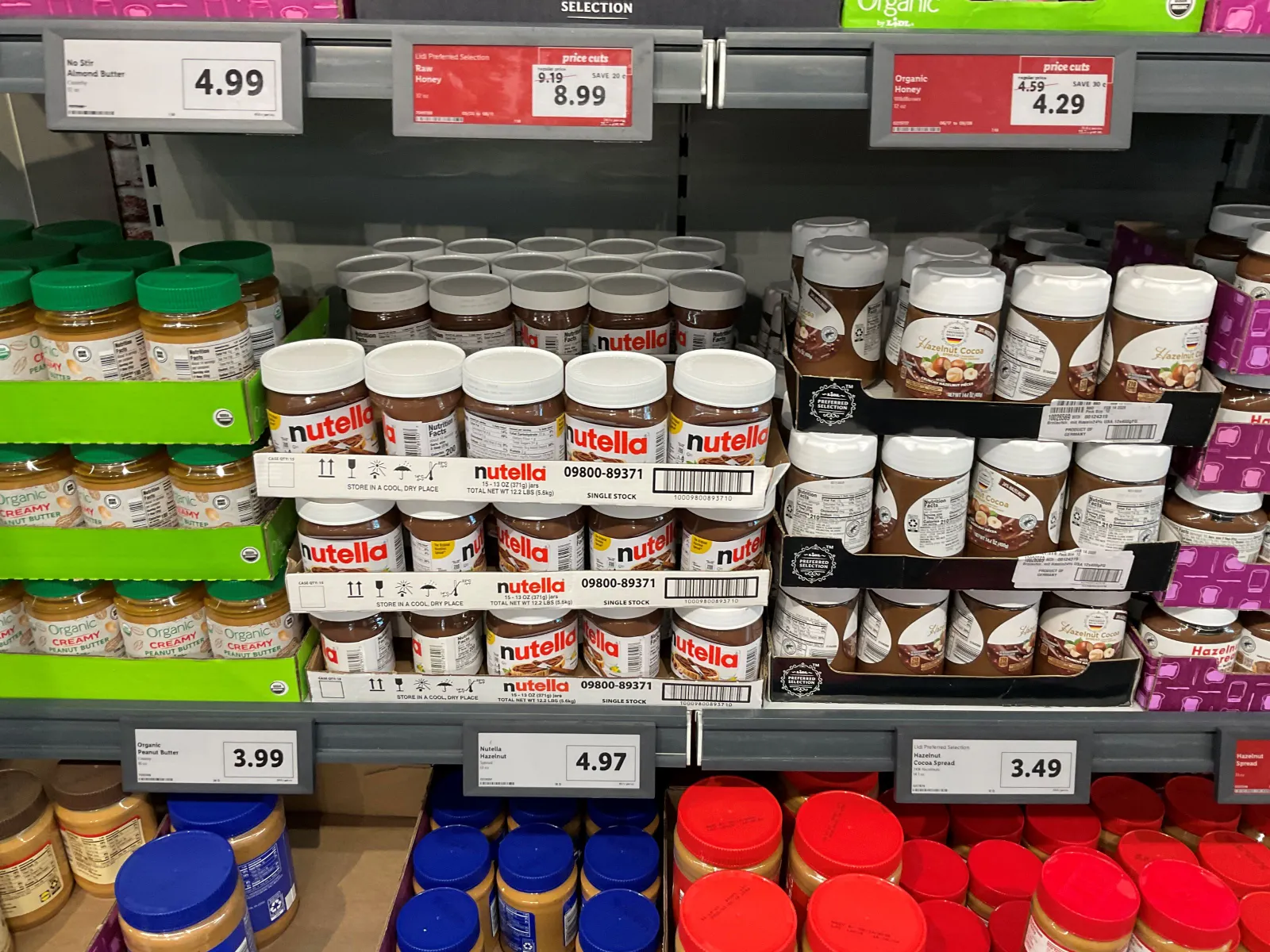
Private label products are a hallmark of Lidl’s operations around the world, including in the U.S., and the chain deliberately places highly regarded name-brand items immediately adjacent to goods it sells under its own name to emphasize that it offers choice and value, according to Rampoldt.
Standing in front of a cooler containing jars of Nutella hazelnut spread, Rampoldt noted that Lidl not only offers a comparable product that carries its own brand for less but also has a premium version under its Preferred Selection brand that also carries a lower price than Nutella.
“The customer has the choice. If you want the national brand, in this case, we have it, and we have it at a great price, but our private brand options are extraordinary,” he said.
Using imports strategically
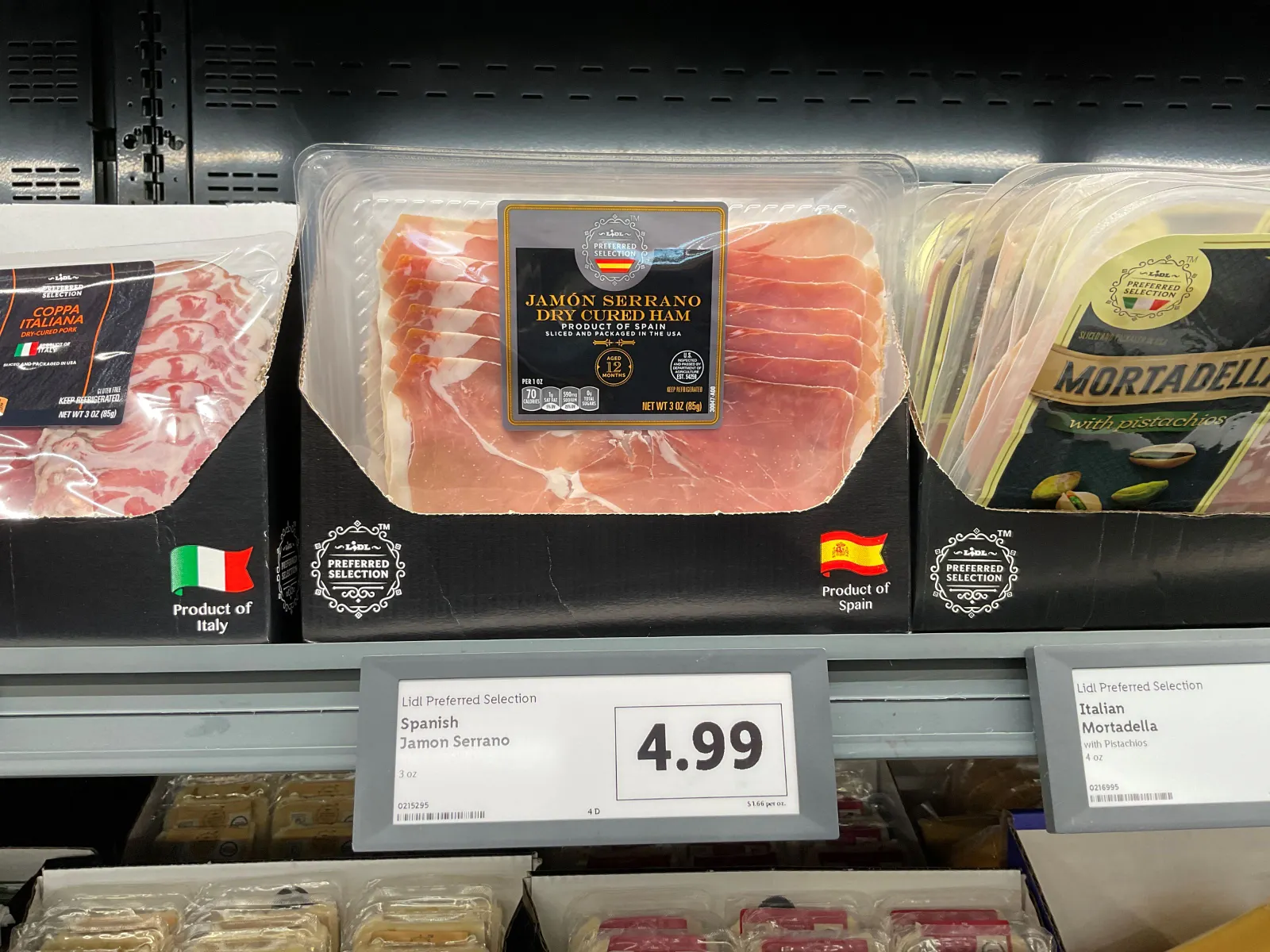
Imported products play a key role in Lidl’s efforts to demonstrate to shoppers that it offers unique products despite being a discount grocer.
While 85% of what Lidl’s U.S. stores sell comes from the United States, the company deliberately imports products when it determines that looking elsewhere is a better option, Rampoldt said.
To highlight that, Rampoldt pointed to premium packages of ham and Parmigiano Reggiano cheese. “Spanish ham needs to come from Spain. Parmesan Reggiano cheese needs to come from Italy, or it’s not authentic,” he said. “Where it’s imported, it’s for a reason … this is a quality and a price point that we get by being part of the world’s fourth largest retailer, which has enormous global buying power.”
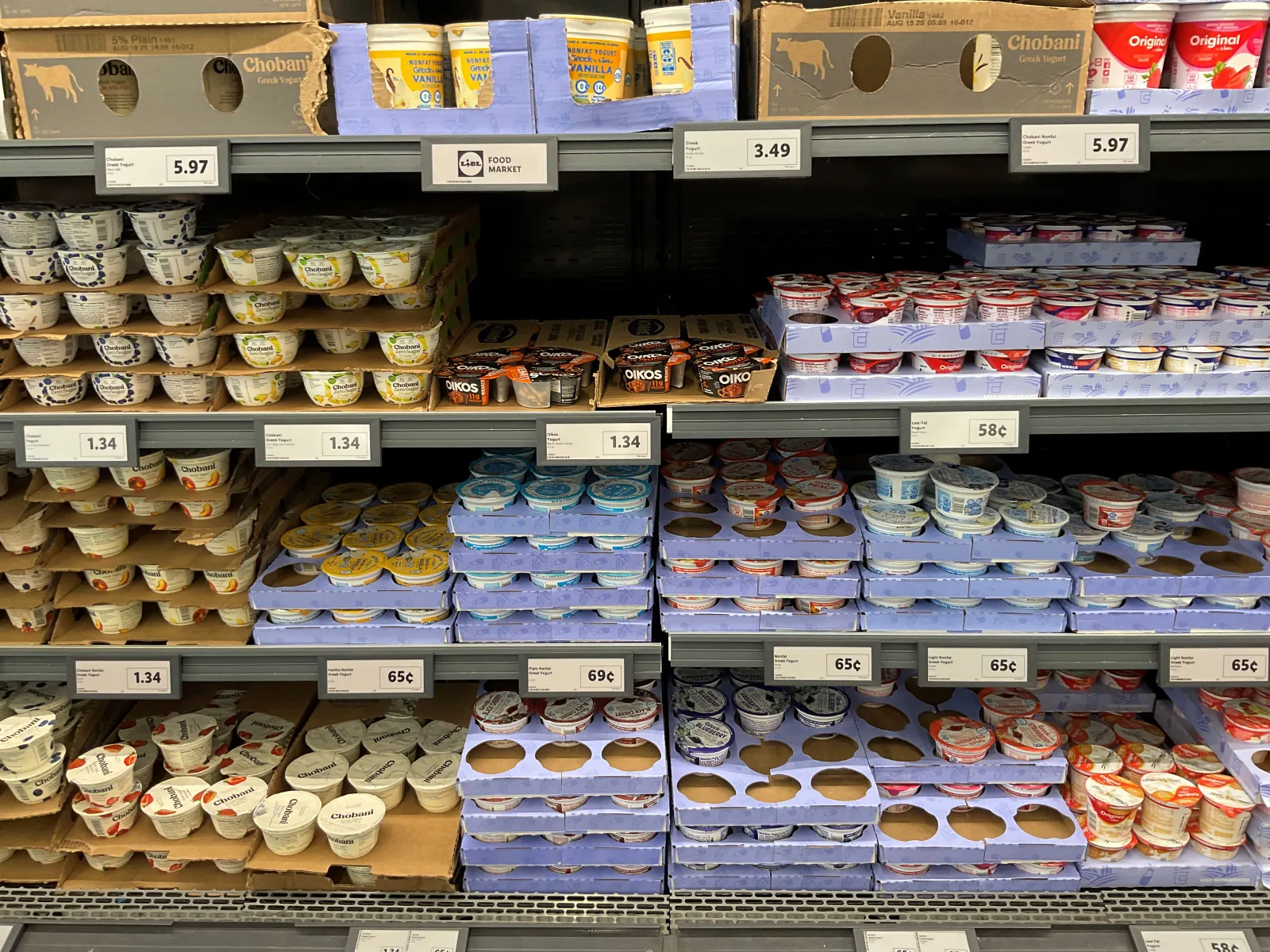
While Lidl looks outside the U.S. for certain products, it has to source other goods domestically for practical reasons, like maintaining freshness.
In an illustration of that, Rampoldt said the grocer doesn’t currently carry private label high-protein yogurt in its U.S. stores even though Lidl locations in Europe do, but is working to change that.
Putting Lidl’s stamp on meat
Lidl also works its international reach into its branding strategy. For example, Lidl sells meat under its Dulano name, which the discounter uses across the more than 30 countries where it runs stores.
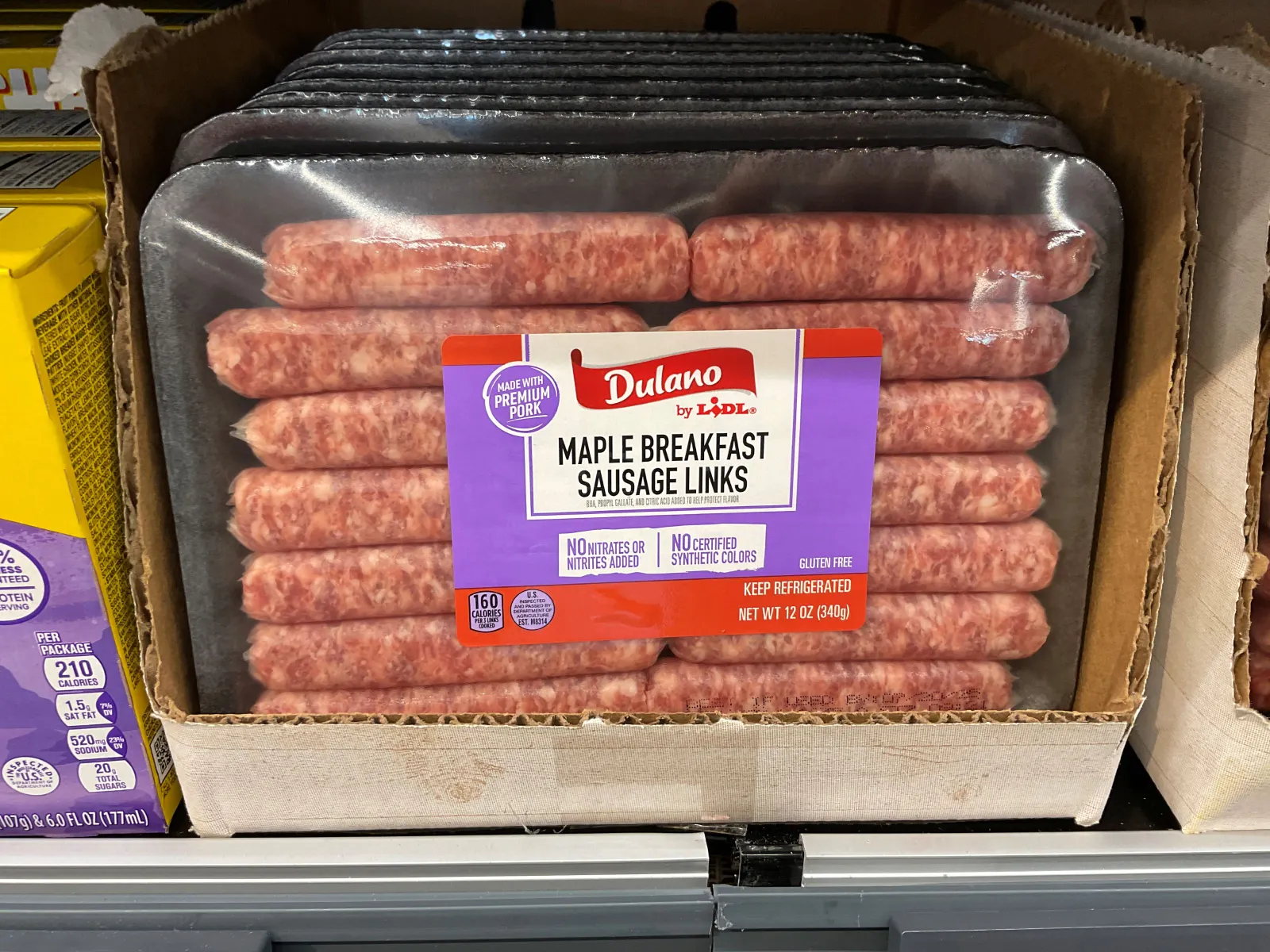
Dulano “is not just a house brand. It has bulk behind it. It has market presence and scale, and it's a real brand, and we want to bring that to the U.S.,” Rampoldt said. But because the brand might not be recognizable to many U.S. shoppers, Dulano products in stores in this country also note that Dulano is “by Lidl.”
Lidl recently unveiled its first U.S.-specific private meat brand, Butcher’s Specialty, a move Rampoldt said he believes distinguishes Lidl from retailers that don’t put their own name on fresh meat.
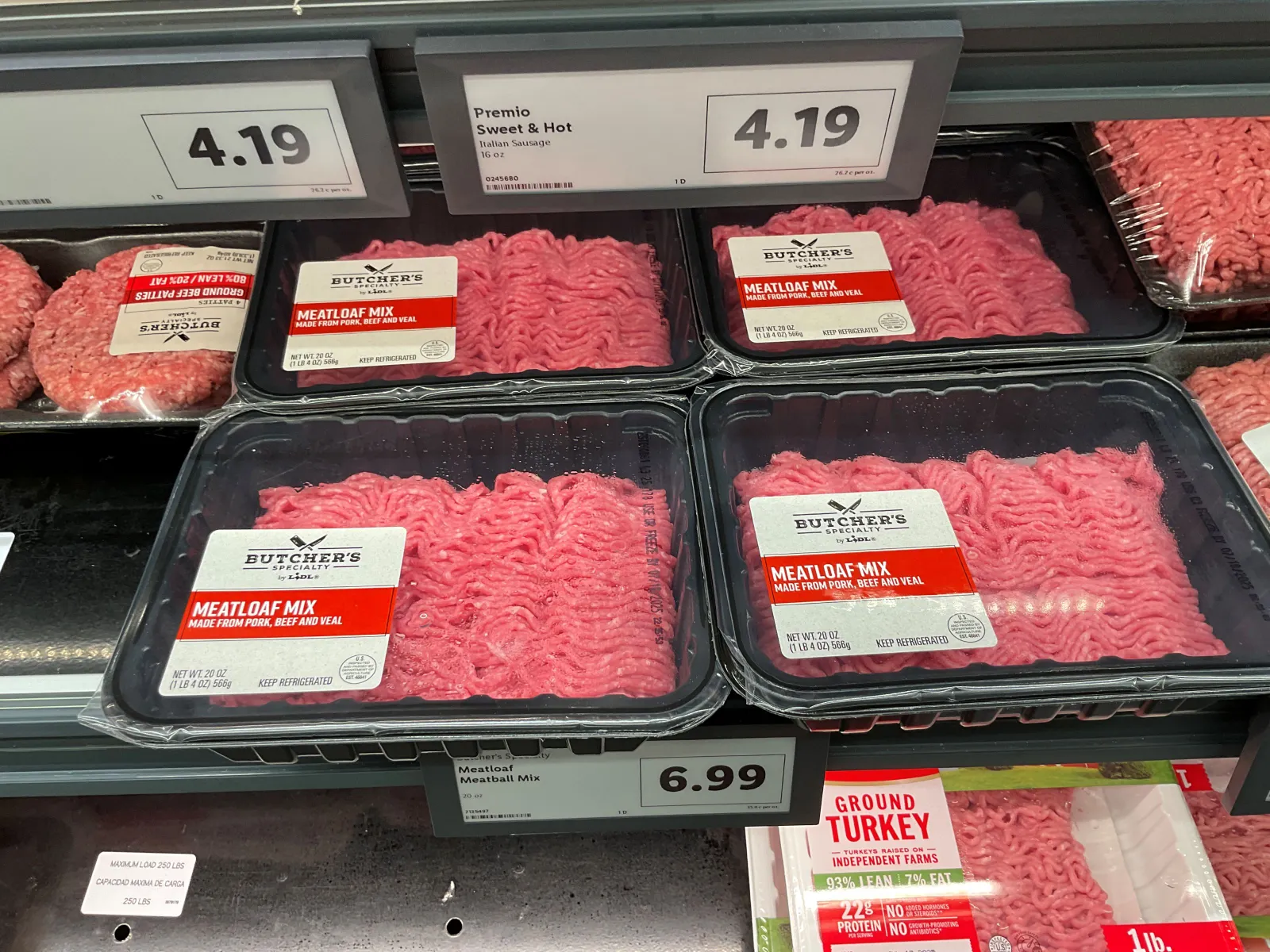
“We’ve put a lot of work into finding the right supplier partners, the right supply chain, to make sure this product is a great value and a great quality,” Rampoldt said about the new brand.
Building in an element of surprise
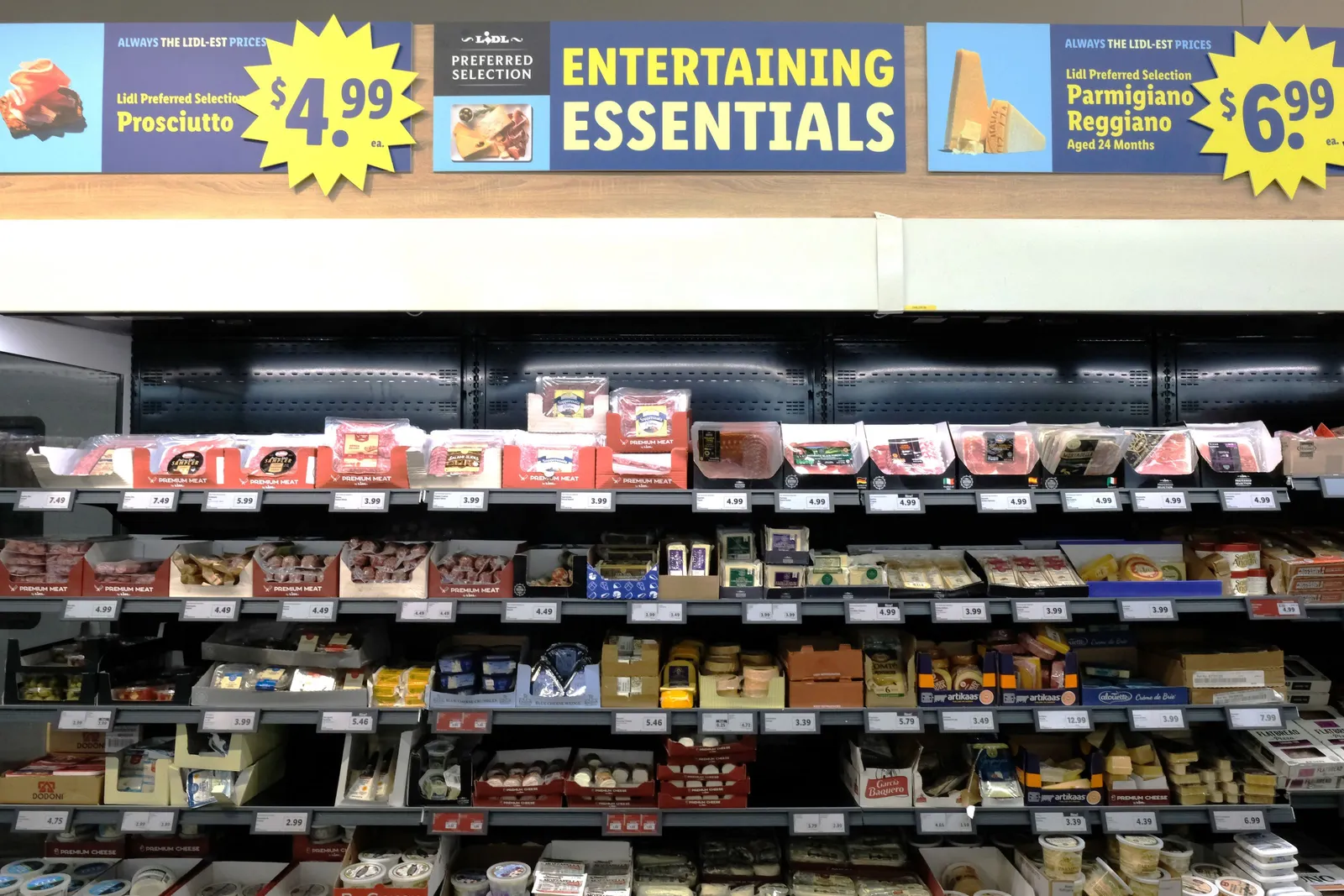
Aside from their main meat selection, Lidl’s stores feature a separate section of meats, cheeses and items oriented specifically toward entertainment, which Rampoldt said is intended to help shoppers associate a trip to its locations with enjoying food.
Lidl also strives to impress shoppers with a rotating assortment of goods that it doesn’t always carry, with many of these items clustered in an area it calls “Big Lidl Deals.”
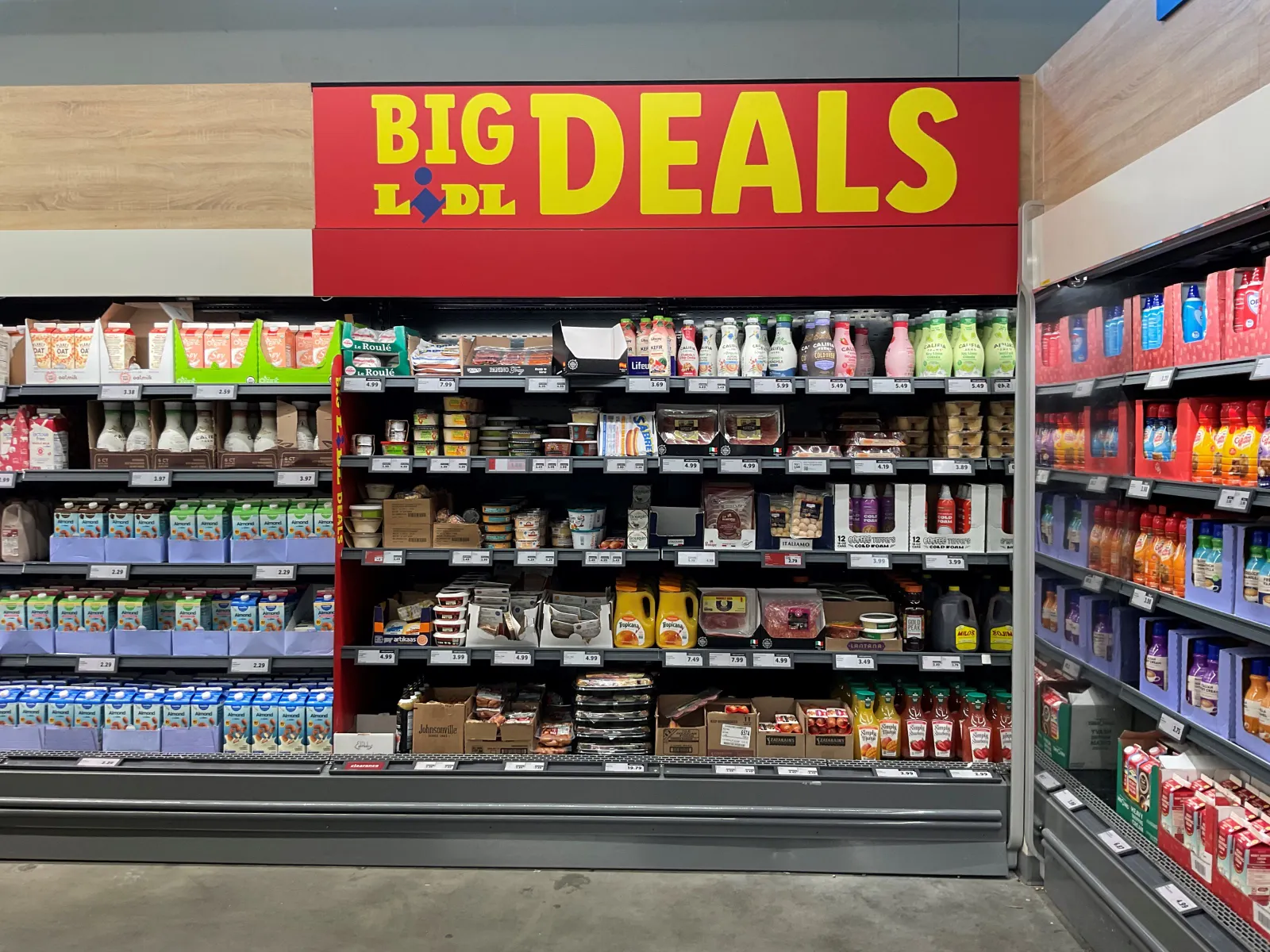
Rampoldt pointed to a premium variety of bacon in the section as an example of the type of product Lidl carries in the section.
“When we have an extraordinary opportunity … we bring that in for our customers, and our customers know they won't be able to find that every day, but when they do find it, it’s at a really, really great price,” he said.



